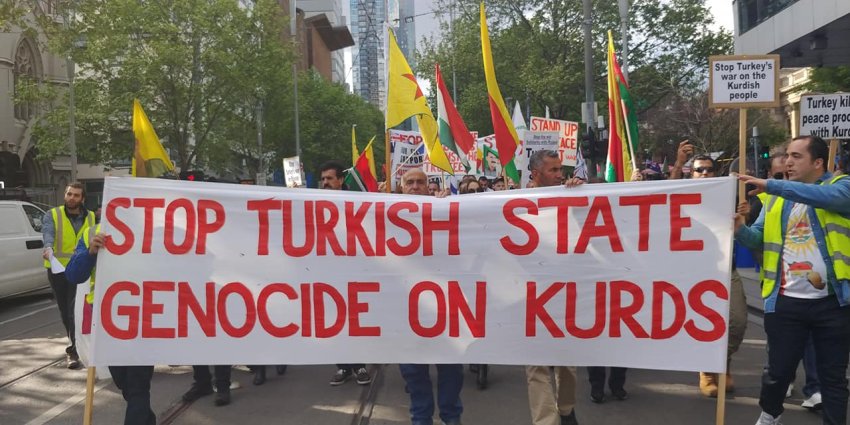
A few years ago the world was horrified when Islamic State of Iraq and Syria (ISIS) troops ran amok in the Middle East.
However, the ISIS advance came up against the Kurdish-led People's Protection Units (YPG) and Women's Protection Units (YPJ), which are based in the northern part of Syria known as Rojava and are today part of the Syrian Democratic Forces (SDF).
Made up of mostly Kurds, but including other ethnic groups, the SDF is motivated by ideas of grassroots democracy, women's rights, and ethnic and religious tolerance. After fierce battles in Aleppo, Kobane, Raqqa, Mosul and other places, the SDF defeated ISIS.
Influenced by the radical democratic ideas of Abdullah Ocalan, a Kurdish leader who has been imprisoned by Turkey since 1999, the people of Rojava have built up forms of autonomous local government in the region.
Their example has not been to the liking of the autocratic regimes in the region, in particular Turkey's President Recep Tayyip Ergodan. With the ISIS threat diminished, United States President Donald Trump gave the OK for Ergodan to invade Rojava.
This attack threatens a new genocide against the Kurds, Yezidi and other minorities in Rojava and could plunge Syria, if not the Middle East, into yet another war.
With Turkey in control, ISIS could well make a comeback if its former fighters are released from detention in Rojava, and Turkey again provides them with logistical support.
Turkey's claims of "security concerns" lack legitimacy. The SDF has never attacked Turkey, a country of 80 million people with a huge army.
If Prime Minister Scott Morrison is as concerned about refugees as he claims to be, Australia should condemn the invasion, end all military and security cooperation with Turkey and secure emergency aid for those being forced to flee the region.
[Zerebar Karimi is a unionist and Kurdish activist. An earlier version of this appeared in the Newcastle Herald.]